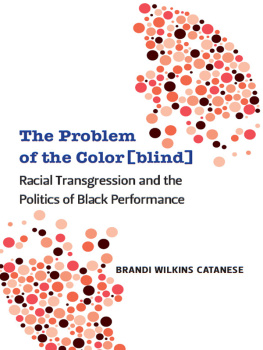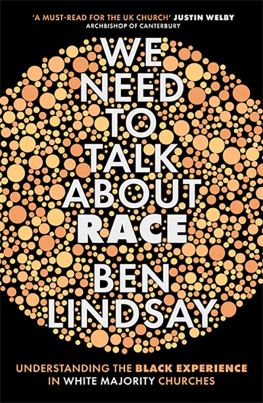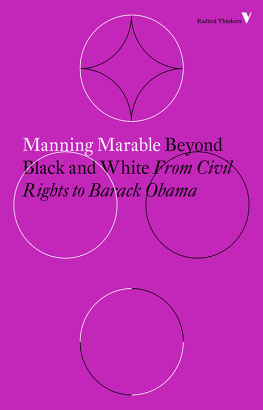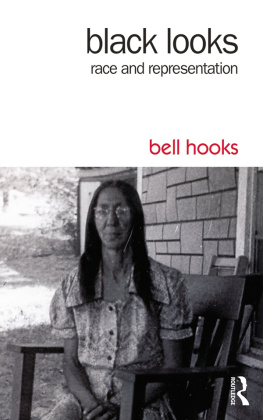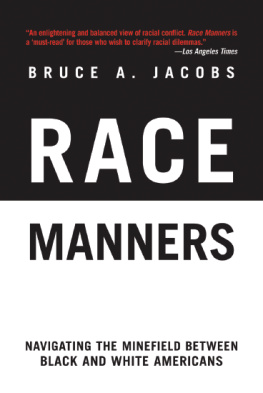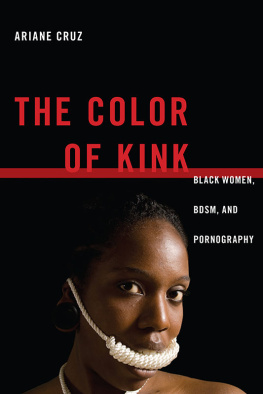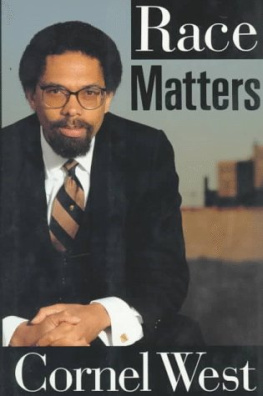Catanese - Theater
Here you can read online Catanese - Theater full text of the book (entire story) in english for free. Download pdf and epub, get meaning, cover and reviews about this ebook. publisher: University of Michigan Press, genre: Politics. Description of the work, (preface) as well as reviews are available. Best literature library LitArk.com created for fans of good reading and offers a wide selection of genres:
Romance novel
Science fiction
Adventure
Detective
Science
History
Home and family
Prose
Art
Politics
Computer
Non-fiction
Religion
Business
Children
Humor
Choose a favorite category and find really read worthwhile books. Enjoy immersion in the world of imagination, feel the emotions of the characters or learn something new for yourself, make an fascinating discovery.
- Book:Theater
- Author:
- Publisher:University of Michigan Press
- Genre:
- Rating:4 / 5
- Favourites:Add to favourites
- Your mark:
- 80
- 1
- 2
- 3
- 4
- 5
Theater: summary, description and annotation
We offer to read an annotation, description, summary or preface (depends on what the author of the book "Theater" wrote himself). If you haven't found the necessary information about the book — write in the comments, we will try to find it.
Theater — read online for free the complete book (whole text) full work
Below is the text of the book, divided by pages. System saving the place of the last page read, allows you to conveniently read the book "Theater" online for free, without having to search again every time where you left off. Put a bookmark, and you can go to the page where you finished reading at any time.
Font size:
Interval:
Bookmark:

THEATER: THEORY/TEXT/PERFORMANCE
Series Editors: David Krasner and Rebecca Schneider Founding Editor: Enoch Brater
Recent Titles:
The Stage Life of Props by Andrew Sofer
Playing Underground: A Critical History of the 1960s Off-Off-Broadway Movement by Stephen J. Bottoms
Arthur Miller's America: Theater and Culture in a Time of Change edited by Enoch Brater
Looking Into the Abyss: Essays on Scenography by Arnold Aronson
Avant-Garde Performance and the Limits of Criticism: Approaching the Living Theatre, Happenings/Fluxus, and the Black Arts Movement by Mike Sell
Not the Other Avant-Garde: The Transnational Foundations of Avant-Garde Performance edited by James M. Harding and John Rouse
The Purpose of Playing: Modern Acting Theories in Perspective by Robert Gordon
Staging Philosophy: Intersections of Theater, Performance, and Philosophy edited by David Krasner and David Z. Saltz
Critical Theory and Performance: Revised and Enlarged Edition edited by Janelle G. Reinelt and Joseph R. Roach
Reflections on Beckett: A Centenary Celebration edited by Anna McMullan and S. E. Wilmer
Performing Conquest: Five Centuries of Theater, History, and Identity in Tlaxcala, Mexico by Patricia A. Ybarra
The President Electric: Ronald Reagan and the Politics of Performance by Timothy Raphael
Cutting Performances: Collage Events, Feminist Artists, and the American Avant-Garde by James M. Harding
Illusive Utopia: Theater, Film, and Everyday Performance in North Korea by Suk-Young Kim
Embodying Black Experience: Stillness, Critical Memory, and the Black Body by Harvey Young
No Safe Spaces: Re-casting Race, Ethnicity, and Nationality in American Theater by Angela C. Pao
Artaud and His Doubles by Kimberly Jannarone
The Problem of the Color[blind]: Racial Transgression and the Politics of Black Performance by Brandi Wilkins Catanese
The Sarah Siddons Audio Files: Romanticism and the Lost Voice by Judith Pascoe
Copyright by the University of Michigan 2011
All rights reserved
Published in the United States of America by The University of Michigan Press
Manufactured in the United States of America Printed on acid-free paper
Printed on acid-free paper
2014 2013 2012 2011 4 3 2 1
No part of this publication may be reproduced, stored in a retrieval system, or transmitted in any form or by any means, electronic, mechanical, or otherwise, without the written permission of the publisher.
A CIP catalog record for this book is available from the British Library.
Library of Congress Cataloging-in-Publication Data
Catanese, Brandi Wilkins, 1974
The problem of the color(blind) : racial transgression and the politics of black performance / Brandi Wilkins Catanese.
p. cm.(Theatertheory/text/performance)
Includes bibliographical references and index.
ISBN 978-0-472-07126-5 (cloth : acid-free paper)
ISBN 978-0-472-05126-7 (pbk.: acid-free paper)
1. African Americans in the performing arts. 2. African Americans in motion pictures. 3. African AmericansRace identity. 4. Performing artsSocial aspectsUnited States. 5. Motion picturesSocial aspectsUnited States. 6. United StatesRace relations. I. Title.
PN1590.B53C37 2011
791.089'6073dc22 2010043128
(electronic ISBN: 978-0-472-02792-7)
I am very honored to have been the beneficiary of all of the support that has led to the publication of this book. Friends and family, mentors, colleagues, and students have all shaped this book, and in the process, have shaped me as well. It is a humbling privilege to begin the act of thanking them with this list of acknowledgments.
I must begin by recognizing mentors who nurtured these ideas in their earliest forms: at UC Berkeley, Saidiya Hartman, Barbara Christian, Margaret Wilkerson, David McCandless, and Dunbar Ogden planted the seeds that prepared me to avail myself of the support and encouragement of Harry Elam, Peggy Phelan, Alice Rayner, and Helen Brooks during my time at Stanford University. Upon my return to Berkeley, institutional support from both the Humanities Research Fellowship and UC Berkeley's Office of Faculty Equity provided time and a room (and laptop) of my own in which to achieve major work on this project. Funds from the Mellon Foundation made its completion possible. My colleagues in the departments of African American Studies and Theater, Dance, and Performance Studies at UC Berkeley have been constant sources of inspiration and support. I offer overarching thanks to all of my faculty and staff colleagues in both departments. I offer special thanks to W. B. Worthen, Charles Henry, and Percy Hintzen for their leadership at the time of my arrival at Berkeley, and to Mark Griffith, Shannon Jackson, Catherine Cole, Ula Taylor, and Stephen Small for their leadership and guidance in subsequent years. I am grateful to each of them for the ways in which they have encouraged my work, and I also appreciate the support of colleagues including Peter Glazer, Leigh Raiford, and Shannon Steen, who responded to my work at various stages throughout this journey. I am exceedingly thankful for the critical and personal generosity they have bestowed upon me. I have tremendous respect and appreciation for the graduate and undergraduate students that I have had the privilege of teaching at UC Berkeley, whose courage, optimism, and dazzling intelligencehave influenced my thinking in ways that keep me grounded in my reasons for pursuing a life in this profession.
I am also grateful to a broader web of colleagues who have worked directly and indirectly to support me and this work at various stages: they include Patrick Anderson; Stephanie Batiste; Annemarie Bean; Hershini Bhana; the far-flung members of the Black Performance Theory group; Jennifer Devere Brody; Daphne Brooks; Telory Davies; Tommy DeFrantz; Michele Elam; the other members of the Fab Five cohort: Faedra Carpenter, Shawn Kairschner, Jisha Menon, and Zack; Kathleen Frydl; E. Patrick Johnson; Dwight McBride; Heather Nathans; Elizabeth Nordt; Sandra Richards; Joseph Roach; David Romn; Maya Roth; Scott Saul; Arden Thomas; Bryan Wagner; Stacy Wolf; and Harvey Young. The forced periods of isolation that the practice of writing requires were sweetly healed by the fellowship that these scholars and others have offered over the years.
At the University of Michigan Press I have benefited from a level of care, patience, and engagement that begins with the support of the incomparable LeAnn Fields, whose patience and enthusiasm for this project have sustained me on many occasions. Additionally, while I only know to acknowledge Scott Ham and Marcia LaBrenz by name, I offer thanks to the entire staff at the press whose help has gone into making the publication of this book possible. Additionally, while the shortcomings of this book are my own, it has benefited tremendously from feedback during the peer review process, and from the editorial wisdom and encouragement of David Krasner and Rebecca Schneider.
Finally, I offer my deepest thanks to my family, the people who have offered me unconditional love during the immediate process of writing this book, and in so many other ways. My parents, Robert and Vicki Wilkins, have been unerring in their support of my development as a person and as a scholar. I am sure that I will never fully comprehend all that they have done to make the life that I enjoy today possible, but I thank them for their fierce love and the values that they instilled in me. I cherish my brother and sister, Rob and Courtney, for the joy that they have brought into my life and all of the ways that they make me proud to be their big sister. I honor my grandparents, LaVada Wilson and Rose and Leroy Lawson, for the examples of hard work, commitment, and love of family that they have shown to future generations. I thank the entire Catanese family for welcoming me so wholeheartedly into their lives and rituals, and my extended family of aunts, uncles, cousins, and friends-as-family (including my favorite armchair cultural critic Christina Royal, with whom I have thought through more than one of the ideas in this book) for giving me a robust and joyful life that helps me to keep the vagaries of work in perspective.
Font size:
Interval:
Bookmark:
Similar books «Theater»
Look at similar books to Theater. We have selected literature similar in name and meaning in the hope of providing readers with more options to find new, interesting, not yet read works.
Discussion, reviews of the book Theater and just readers' own opinions. Leave your comments, write what you think about the work, its meaning or the main characters. Specify what exactly you liked and what you didn't like, and why you think so.

